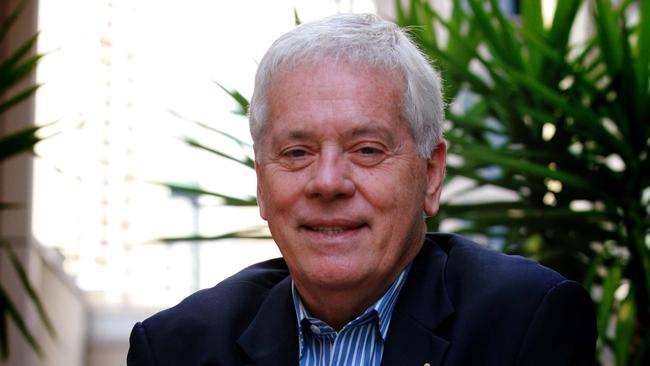Push for widened testing of pupils: education expert
An expanded, rebranded NAPLAN test would play a key role in ensuring that schools were on track to improving student outcomes, argues education expert.

The architect of the My School website and chairman of the latest review of NAPLAN has defended a proposal to expand the student testing regime, pointing to Australia’s declining academic performance internationally as a cause for serious concern.
Emeritus professor Barry McGaw, who released the final report of the NSW-led NAPLAN review on Friday, also stared down opposition from the teacher unions over his push to retain standardised testing, arguing it provided crucial data needed to track progress towards the nation’s education goals.
The report, while broadly welcomed, has been heavily criticised by the unions which have been agitating for the standardised test — which involves testing all students in Years 3, 5, 7 and 9 — to be scrapped and replaced by less onerous sample testing.
“If you look at sample testing, you can monitor state and territory and national progress, and compare males and females … and also broadly Indigenous students’ outcomes,” Professor McGaw told The Australian.
“But unless you test every child, you can’t actually say what’s happening at the school level or give parents information on how their own child is going. And that’s really important.”
While the report has yet to be endorsed by the Education Council, its recommendations amount to a significant overhaul of student testing.
Under the recommended changes, NAPLAN would effectively be scrapped and replaced with an Australian National Standardised Assessment covering literacy, mathematics and critical and creative thinking in science and technology.
It would also delay Year 9 tests to Year 10 and bring the assessment forward in the year to reduce the temptation for schools to “teach to the test”. The problematic writing test would also be redesigned, with teachers given a role in the assessment.
The review, which was commissioned by NSW with support from Queensland, the ACT and Victoria, also notes the discrepancy between NAPLAN outcomes, which have largely remained stagnant over the past decade, and the performance of Australian students on international tests such as Trends in International Mathematics and Science Study and Program for International Student Assessment, which have declined.
A lower proportion of local students achieve to the level set by the international benchmarks compared to the NAPLAN national minimum standards.
“We set (national minimum standards) too low and the education ministers think that as well,” Professor McGaw said.
“I believe the international tests (at the secondary level) are more reflective.”
While a proposed timeline would not see any significant changes until 2022 or 2023, Professor McGaw said it was important that NAPLAN, which was scrapped this year due to the coronavirus pandemic, went ahead as planned in 2021.
He said schools needed to be informed about the impact of the disruption on student learning, particularly in Victoria where remote schooling continues.





To join the conversation, please log in. Don't have an account? Register
Join the conversation, you are commenting as Logout